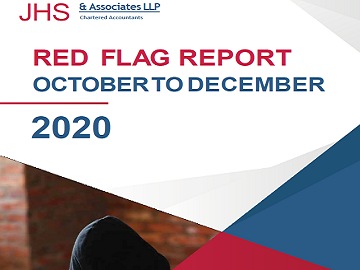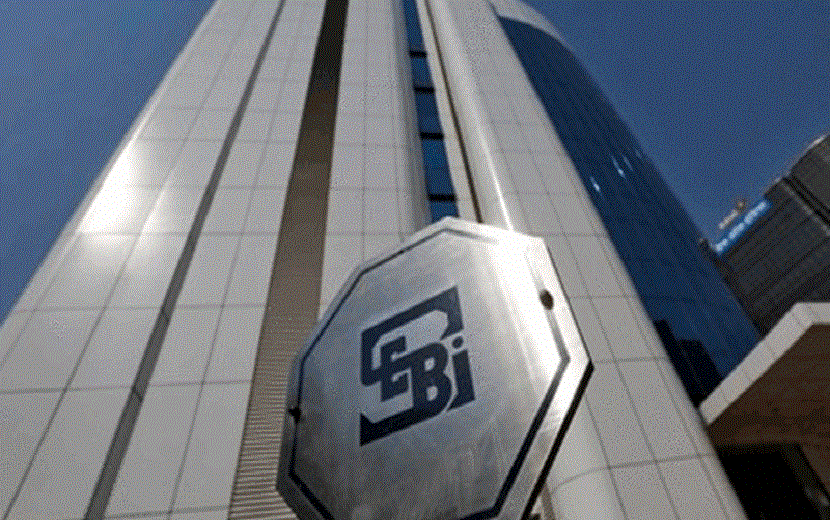Reference: Central Board of Indirect Taxes and Customs
Update:
Mandatory uploading of specified supporting documents and mention of document code and IRN in Bills of Entry (BoE):
Currently, on the import side, uploading of at least one document on e-Sanchit is mandatory for every Bill of Entry. This is now being modified to mandatorily uploading on eSANCHIT, for every Bill of Entry, Invoice/ Invoice cum packing list and Transport Contract i.e. Bill of Lading/ Airway bill etc., as the case may be.
Implication:
With effect from 02.12.2019, for every Invoice and Bill of Lading / Airway Bill declared in the
Bill of Entry, the reference of IRN generated from eSANCHIT with the relevant document code
as given above must be provided
Update:
Clearance of import of metal scrap – Procedure Regarding:
CBIC had specified that all the designated sea ports as specified in the DGFT Public Notice No. 38/2015- 2020, dated 6-10-2016 are expected to install and operationalize Radiation Portal Monitors and Container Scanners by 31-3-2017 and till such time, the consignments of un-shredded, compressed or loose scrap shall be subjected to scanning based on risk assessment at those ports where such facilities for scanning are currently existing. DGFT has extended the deadline to install the said facilities from time to time and vide Public Notice 34/2015-2020 dated 25.9.19 has extended the time limit further upto 31.12.19.
Implication:
There should not be any difficulty in clearing the said consignments till such time the customs formation, where such clearance is intended, is on the EDI and enabled with RMS profiling. Commissionerates, are however at liberty to order for 100% examination in case the consignments present any additional risks.
Update:
Distribution of electricity to consumers & transmission of electricity from sub-stations is exempt from GST:
Southern Power Distribution Company of AP Ltd., In re – [2019] 111 taxmann.com 500 (AAR – ANDHRA PRADESH)
The applicant, M/s southern Power Distribution company of Andhra Pradesh Limited, is a state-owned company having \’Distribution Licence\’ as defined in Electricity Act, 2OO3, and is engaged in distribution of electricity to consumers and transmission of electricity from sub-stations. The applicant seeks advance ruling to determine whether the supply of services such as connection, reconnection, supervision of the works, erection of poles, sub-stations, transmission lines etc. and supply of meters etc. to the consumers is exempted under GST.
The Authority for Advance Ruling observed that for a supply to be considered as a composite supply, its constituent supplies should be so integrated with each other that one is not supplied in the ordinary course of business without or independent of the other. In other words, they are naturally bundled. In view of the above, the distribution and supply of electricity only is exempted and the other services are not exempted and also not naturally bundled to become composite supply, and any other services provided are taxable.
Therefore, any service, other than transmission or distribution of electricity, rendered by the applicant is not eligible for claiming exemption. Services rendered apart from \”transmission or distribution of electricity are taxable.
Reference: Central Board of Direct Taxes
Update:
Prohibition of Benami Property Transactions (1st Amendment), Rules, 2019 Notified:
The Central Government has notified the Prohibition of Benami Property Transactions (1st Amendment), Rules, 2019 to prescribe fees of Rs. 2,000 for filing appeal against penalty order under the Prohibition of Benami Property Transactions Act, 1988.
Implication:
Fees of Rs 2000 shall be payable for filing appeal against penalty order under Benami Act
Reference: Ministry of Corporate Affairs
Update:
MCA amended Companies (Cost Records and Audit) Amendment Rules.
The Ministry of Corporate Affairs (MCA) vide Notification No. G.S.R. 792 (E) dated 15.10.2019 has amended the Companies (Cost Records and Audit) Rules, 2014 through Companies (Cost Records and Audit) Amendment Rules, 2019 due to implementation of GST, other procedural changes and consequent revision of connected forms i.e. CRA-1 (Particulars relating to the items of costs to be included in the Books of Accounts) and CRA-3 (Form of Cost Audit Report).
The companies who have already filed their Cost Audit Report in form CRA-4 for the financial year 2018-19 with the Central Government before the publication of Notification No. G.S.R. 792 (E) dated 15.10.2019 are not required to file their Cost Audit Report again for the said financial year as provided in clause 1(3) of the aforesaid notification.
Implication:
The said amendment was carried out due to implementation of GST, other procedural changes and consequent revision of connected forms i.e. CRA-1 and CRA-3
Reference: Reserve Bank of India
Update:
Monetary penalty on Corporation Bank:
The Reserve Bank of India has imposed a monetary penalty of Rs. 1.50 crore on Corporation Bank for noncompliance with certain provisions of directions issued by RBI on “Prudential Norms on Income Recognition, Asset Classification and Provisioning Pertaining to Advances – Divergence in NPA Accounts”, “Prudential norms on Income Recognition, Asset Classification and Provisioning pertaining to Advances”, “Prudential Norms for Classification, Valuation and Operation of Investment Portfolio by Banks”, “Framework to Revitalise the Distressed Assets in the Economy – Rectification and Restructuring”, “End Use of Funds – Monitoring”, “Discounting/Rediscounting of Bills by Banks” and “Reserve Bank of India (Frauds classification and reporting by commercial banks and select FIs) directions 2016”.
Implication:
The said Bank will comply with all the directives issued by RBI to avoid further penalty.
Update:
Extension of validity of directions-Shivam Sahakari Bank Ltd., Maharashtra:-
The Reserve Bank of India had stated that directions issued to Shivam Sahakari Bank Ltd., Ichalkaranji, Dist. – Kolhapur, Maharashtra vide directive DCBS.CO.BSD-I/D-6/12.22.351/2017- 18 dated May 18, 2018, shall continue to apply to the bank till 31st January 2020.
Implication:
The said bank will follow the directions issued by RBI for further period till 31st January 2020.
Reference: Securities and Exchange board of India
Update:
Norms for Debt Exchange Traded Funds (ETFs)/Index Funds:
SEBI has prescribed norms for debt exchange traded funds (ETFs) wherein no single issuer will have more than 15% weight in the index.
Under the norms to be adopted by all mutual fund houses, the index will have a minimum of 8 issuers, rating of the constituents of the index will be investment grade and the constituents of the index will have a defined credit rating as well as maturity as specified in the methodology of the index.
In case, where the credit rating of an issuance falls below the investment grade or rating mandated in the index methodology, rebalancing by debt ETFs or index funds need to be done within a period of 5 working days.
Implication:
These norms will not be applicable to debt ETFs, tracking debt indices having constituents as government securities, treasury bills and tri-party repo.
Update:
Cut-off Time for Determining Minimum Threshold of Margins to be collected from Clients:
Securities and Exchange Board of India vide circular stated that instead of the end of day (EoD), now the cut-off time for the purpose of determining minimum threshold of margins to be collected by members from their clients will be 5 pm.
Implication:
The directive will be effective from April 1, 2020.













